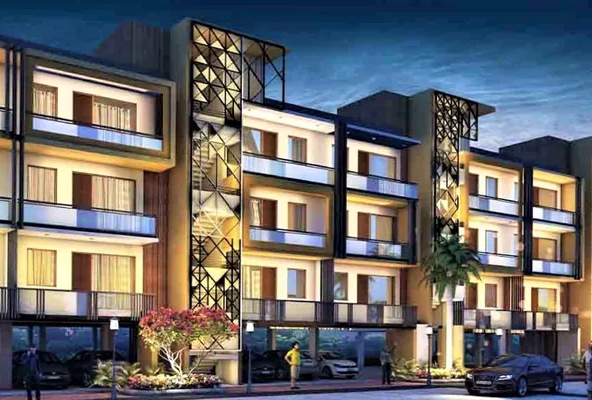From the buyer’s standpoint, purchasing a resale flat is a good investment. What could be a better offer than owning a flat at a lower price than the market rate? Furthermore, when you buy a resale apartment, you save the money you would have spent on rent. Instead, you could put the money toward your house loan EMIs if you bought a resale unit with a home loan. You can also move into the flat right away after purchasing it, rather than waiting months or years.
However, because a resale apartment has been through various hands in the past, the process of purchasing one entails a number of complicated legal procedures and technical considerations. As a result, before making a final decision to buy a resale flat in Bangalore or anywhere else in India, you should check and verify all of the property papers and legal documents involved in the transaction to ensure that the flat has all of the necessary government approvals and that the seller has the legal right to sell it.
You must have access to the property’s whole chain of documentation and agreements. You should also get and check all previous agreements and documentation related to the flat’s purchase and sale up to this point.
The following is a list of paperwork to look over before buying a resale apartment:
- Title Report – In order to recover the chain of documents that show the flat’s history, you should do a title search at the registrar’s office. After that, you will receive a written analysis of the flat in the form of a title report, which will include its description as well as other information such as its tax rate, title holder’s name, joint encumbrances, and details of property tax, liens, and mortgages.
- NOC from Bank – Check if the unit is mortgaged against a loan with a letter from the bank. Check the debt status of any loans on the property. Request a “No Dues Certificate” from the applicable bank from the seller to certify that any pending dues have been paid back to the bank. This document guarantees that the bank has received all dues from the seller and that there are no outstanding debts on the apartment, allowing you to purchase it with confidence.
- A Building Approval Certificate – An unauthorized structure can cause you problems in the future. As a result, you should check whether the flat was constructed according to a building plan approved by the local municipal government. This plan will show the flat’s floor plan, layout, utilities, and other equipment. If there has been any additional unauthorized building, the flat may be demolished or declared unfit for occupancy in the future.
- Latest Tax Paid Receipts – Before purchasing a resale flat, you should review all of the most recent tax receipts. This will verify that the property is free of any outstanding debts. This will also ensure that the prior owner paid his or her taxes on time and that no fraudulent activity was involved.
- NOCs (No Dues Certificates) from the Society– If you’re buying a flat in a co-operative housing society, you’ll need NOCs (No Dues Certificates) from the society. These documents attest to the seller’s compliance with all society rules and that he or she is not responsible for paying any dues. You’ll also need letters from the society detailing the year the building was built, the total square footage, and the number of storeys and lifts. The NOC also indicates that the society has no objections to the buyer’s receiving the share certificate.
- Title Deed – Purchase the original “Title Deed” of the flat, which represents the sale and transfer of property ownership from the seller to the buyer. It will include the seller’s name, the terms of any loans, and other pertinent information about the property. This assures that the flat has a marketable title and that the seller is the rightful owner. When the title is transferred to your name, make sure to get a copy of the Immediate Title Deed, which will serve as your primary proof of ownership.
- The Sale Deed – is a document that serves as the primary proof of ownership for the future sale of a property. Following the acquisition of the unit, it must be registered with the registrar’s office. It is the most crucial document you must obtain once the seller transfers the title of the flat to you in the form of a title deed. Before signing this important legal document, make sure you read all of the terms and conditions.
- Possession Certificate – When acquiring a privately built resale unit, the possession certificate is required. After the buyer has taken physical possession of the property, this paper is given to him. It is given to the first owner of a flat by the function Object() [native code]. As a result, obtaining the possession paper from the seller is critical when purchasing a resale apartment. It will not be reissued to you when you sell the property; rather, the seller will hand it over to you after you obtain ownership in the form of a Sale Deed.
- Share Certificate – When purchasing a resale property in a cooperative group housing society, you must have a new share certificate issued by the society transferred to you. It will list all of the previous owners’ names. As soon as you obtain the sale deed, ask the seller for the original share certificate, which must be submitted to the society along with a mutually signed transfer form. After you submit the document, the society will issue you a new share certificate naming you as the new owner.
All of these documents are essential components of the chain of documentation required when purchasing a resale apartment. When applying for a resale house loan, you must additionally provide these documents to the bank. If any of these documents are missing or the seller is unable to produce them, it is recommended that you do not purchase the flat since you may face difficulties in the future when selling the property or applying for electricity, water, or other services from the appropriate authorities.




